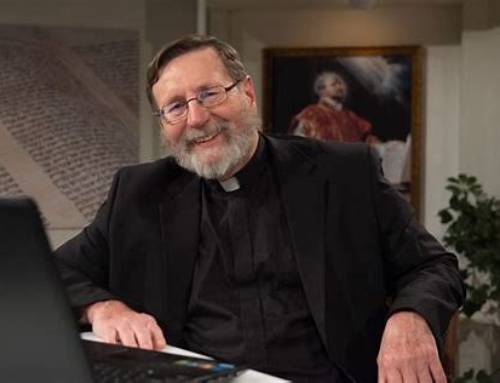From today’s Office of Readings. the Epistle to Diognetus is by an unknown author and dates to as early as 130 AD.
Therefore, it is written about Christians in the midst of the Roman Empire–strangers and aliens in the world they were. I especially like the writer’s bewilderment at the reality of persecution.
Have you ever thought about that? Christians teach the most sublime, beautiful and bountiful message the world has ever seen. Although we do not always live up to it, still our message is one of love, peace, forgiveness, self sacrifice and mercy. We are called to make peace, eschew bloodshed, love children, feed the hungry and house the homeless. This is our ambition even if it not our success. This is what we call the world to do, and this is the vision we share.
And for this we are persecuted, hated, despised and scorned. Why is this? It is inexplicable.
Christians are indistinguishable from other men either by nationality, language or customs. They do not inhabit separate cities of their own, or speak a strange dialect, or follow some outlandish way of life. Their teaching is not based upon reveries inspired by the curiosity of men. Unlike some other people, they champion no purely human doctrine. With regard to dress, food and manner of life in general, they follow the customs of whatever city they happen to be living in, whether it is Greek or foreign.And yet there is something extraordinary about their lives. They live in their own countries as though they were only passing through. They play their full role as citizens, but labour under all the disabilities of aliens. Any country can be their homeland, but for them their homeland, wherever it may be, is a foreign country. Like others, they marry and have children, but they do not expose them. They share their meals, but not their wives. They live in the flesh, but they are not governed by the desires of the flesh. They pass their days upon earth, but they are citizens of heaven. Obedient to the laws, they yet live on a level that transcends the law.Christians love all men, but all men persecute them. Condemned because they are not understood, they are put to death, but raised to life again. They live in poverty, but enrich many; they are totally destitute, but possess an abundance of everything. They suffer dishonor, but that is their glory. They are defamed, but vindicated. A blessing is their answer to abuse, deference their response to insult. For the good they do they receive the punishment of malefactors, but even then they rejoice, as though receiving the gift of life. They are attacked by the Jews as aliens, they are persecuted by the Greeks, yet no one can explain the reason for this hatred.To speak in general terms, we may say that the Christian is to the world what the soul is to the body. As the soul is present in every part of the body, while remaining distinct from it, so Christians are found in all the cities of the world, but cannot be identified with the world. As the visible body contains the invisible soul, so Christians are seen living in the world, but their religious life remains unseen. The body hates the soul and wars against it, not because of any injury the soul has done it, but because of the restriction the soul places on its pleasures. Similarly, the world hates the Christians, not because they have done it any wrong, but because they are opposed to its enjoyments.
So why are Christians persecuted?
Because the church-which is the Body of Christ– does in the world today what Christ did when he was here, and one of the things he did when he was here was to lay down his life and be a saving sacrifice. This is the mystical mission of the church, and this is one of the reasons why I became a Catholic.
Yes, the other Christian groups have their martyrs and God bless them. They are our brothers in blood, but the Catholic Church more than any other, honors the martyrs in every age. And in this the Catholic Church–despite her own human failures–holds on to a truth that is as disturbing as it is glorious.






Great Post! Very on point with the concerns happening around the world and particularly in the Middle East and North Africa.